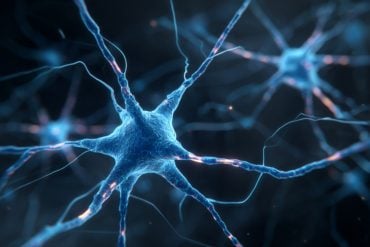Summary: Researchers report altruistic motivations and behaviors can be changed with the help of mental training.
Source: University of Wurzburg.
Whether climate change and its consequences, the refugee crisis or the unfair distribution of wealth, when looking for solutions to these global challenges, the decisions of individuals such as their willingness to cooperate and altruistic acts are just as important as international agreements or national regulations. This is what scientists call “prosocial behaviour”.
Psychologists from the University of Würzburg and the Max Planck Institute for Human Cognitive and Brain Sciences in Leipzig have now published the results of a longitudinal study that investigated the influence of various mental trainings on prosocial behaviour over several months.
Publication in Scientific Reports
The results: “We were able to demonstrate that human prosociality is malleable and that different aspects of prosociality can be improved systematically through different types of mental training,” Anne Böckler-Raettig explains; she is a junior professor at the Institute of Psychology at the University of Würzburg. According to her, this can be achieved through training that consists of short daily practices, which are easy to implement in everyday life. The scientists published the results of their study in the journal Scientific Reports of the Nature Publishing Group.
“Human prosociality is at the heart of peaceful societies and it is key to facing global challenges,” Böckler-Raettig explains. Prosocial behaviour is defined as behaviour that is costly to the individual and benefits others at the individual or group level. Research on cooperation and altruism has been the focus of many disciplines ranging from philosophy and psychology to mathematics and economy, evolutionary biology and neuroscience. Yet, “surprisingly little is known about whether and how human altruistic motivations can be trained,” the junior professor says. She believes that this is because economic models often consider prosociality as a stable social preference whose malleability scientists have considered irrelevant for a long time.
Training with different focuses
The scientists were now able to prove this assumption wrong. Over the course of none months, participants were trained in different types of meditation-based mental training for this purpose. One training module was about increasing present-moment attention and body-awareness – similar to what is taught in mindfulness-based stress reduction classes which are presently popular. A second module focused on socio-affective skills such as compassion, gratitude, and prosocial motivation. The third module was about cognitive flexibility and the ability to understand other people’s perspectives.

“We were mainly interested in which mental training would be effective in cultivating altruistically motivated behaviour, that is behaviour which is immediately directed at improving the well-being of another person,” Anne Böckler-Raettig details. The study results give a clear answer to this question: Only the second module, the so-called Affect Module, had a direct impact on the participants’ motivation to pursue altruistic behaviour. After training units, they were more generous, more willing to help spontaneously and donated higher amounts to welfare organizations, for example.
A step towards a caring society
“Hence, the Affect Module, consisting of three introductory days, weekly meetings with teachers, and about 30 minutes of daily practice over the course of three months, effectively boosted altruistic behaviours regardless of how the exercises were combined with other practices,” the psychologist says. No such progress was measurable in the participants after the two other modules.
So the conclusion the scientists draw is clear: Altruistic motivation and behaviour can be altered through simple, short and inexpensive mental practices. “Cultivating these affective and motivational capacities in schools, healthcare settings and workplaces may be an effective step towards meeting the challenges of a globalized world and moving towards global cooperation and a caring society.”
Funding: ReSource Project, European Research Council, European Community’s Seventh Framework Program, Max Planck Society funded this study.
Source: Anne Boeckler-Raettig – University of Wurzburg
Publisher: Organized by NeuroscienceNews.com.
Image Source: NeuroscienceNews.com image is in the public domain.
Original Research: Open access research for “Distinct mental trainings differentially affect altruistically motivated, norm motivated, and self-reported prosocial behaviour” by Anne Böckler, Anita Tusche, Peter Schmidt & Tania Singer in Scientific Reports. Published September 10 2018.
doi:10.1038/s41598-018-31813-8
[cbtabs][cbtab title=”MLA”]University of Wurzburg”Altruism Can Be Trained.” NeuroscienceNews. NeuroscienceNews, 10 October 2018.
<https://neurosciencenews.com/training-altruism-9991/>.[/cbtab][cbtab title=”APA”]University of Wurzburg(2018, October 10). Altruism Can Be Trained. NeuroscienceNews. Retrieved October 10, 2018 from https://neurosciencenews.com/training-altruism-9991/[/cbtab][cbtab title=”Chicago”]University of Wurzburg”Altruism Can Be Trained.” https://neurosciencenews.com/training-altruism-9991/ (accessed October 10, 2018).[/cbtab][/cbtabs]
Abstract
Distinct mental trainings differentially affect altruistically motivated, norm motivated, and self-reported prosocial behaviour
Global challenges such as climate change or the refugee crises emphasize the necessity of altruism and cooperation. In a large-scale 9-month intervention study, we investigated the malleability of prosociality by three distinct mental trainings cultivating attention, socio-affective, or socio-cognitive skills. We assessed numerous established measures of prosociality that capture three core facets: Altruistically motivated behaviours, norm motivated behaviours, and self-reported prosociality. Results of multiple time point confirmatory factor analyses support the validity and temporal stability of this model. Furthermore, linear mixed effects models reveal differential effects of mental trainings on the subcomponents of prosociality: Only training care and compassion effectively boosted altruistically motivated behaviour. No effects were revealed for norm-based behaviour. Self-reported prosociality increased with all training modules; this increase was, however, unrelated to changes in task-based measures of altruistic behaviour. These findings corroborate our motivation-based framework of prosociality, challenge economic views of fixed preferences by showing that socio-affective training boosts altruism, and inform policy makers and society about how to increase global cooperation.






